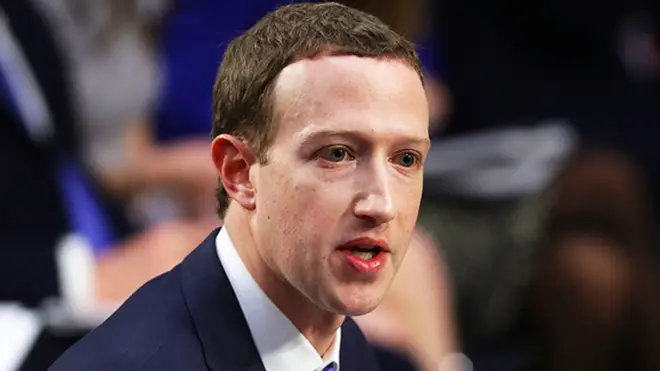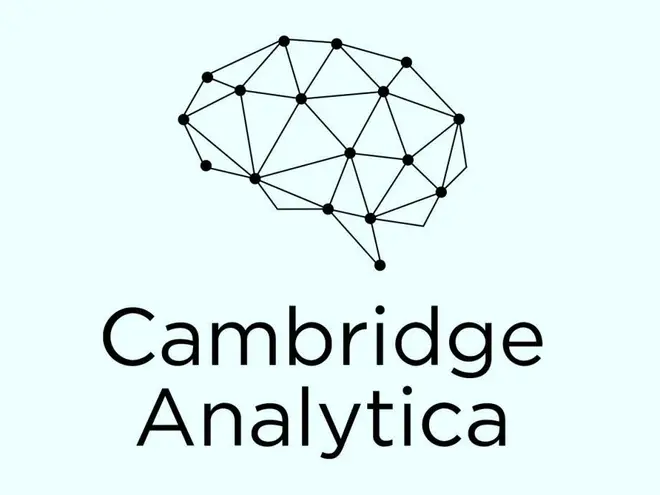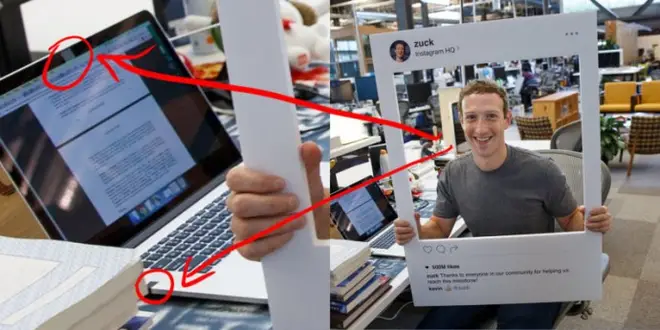On Air Now
The Capital Weekender with Sam Lavery 10pm - 1am
12 April 2018, 13:41

Get caught up on everything that went down
Facebook co-founder and CEO Mark Zuckerberg appeared before the US Congress this week, to answer questions about what Facebook does with its users' private data. Here's a quick guide to what happened and why:
It all started, believe it or not, with a personality quiz that appeared on Facebook. The quiz was called "This Is Your Digital Life" and asked users pretty standard personality quiz questions.
However, unknown to users, the data from this quiz was then passed on to a company called 'Cambridge Analytica', which handles data for political uses. Cambridge Analytica (who I'm gonna start referring to as CA because I can't be bothered to keep typing that over and over again) used this private data to then provide political advice on how to win over voters. CA was used by the Trump campaign in 2016.
All of this data was taken and used by CA without any of the users giving their permission or even being aware. About 270,000 Facebook users shared the data with "thisisyourdigitallife" and this also gave the app information about the friend network of those people, meaning the data of about 50 million users was compromised.
You can find out if you were one of the people who had their data taken, by clicking here.
This couldn't have come at a worse time for Facebook, who are already dealing with issues surrounding fake news and the possibility that Facebook was used by the Russians and other foreign actors to affect the 2016 election.

Zuckerberg was asked to talk to the US Congress and he accepted the invitation. He attended by his own choice and is not on trial, he is merely there to help congress understand the situation.
Congress' mission here is relatively loose. They are mostly just trying to understand how Facebook allowed this data breach to happen and are trying to determine whether there is a risk of it happening again.
The lawmakers are also trying to determine whether the US government needs to step in and regulate Facebook. Currently the site basically regulates itself. The US is famously wary of governments getting too involved in private business, and the nation has relatively loose laws when it comes to issues of data privacy. This is much different to Europe, which has more rigid rules about personal data.
In fact, one senator, even asked Zuckerberg whether Europe 'has it right' when it comes to managing companies like Facebook, to which Zuck hesitantly replied that Europe 'gets some things right', prompting laughter from the room.
Zuckerberg went on to say that the data protections that Facebook offers Europeans (because they are forced to by EU laws) will be extended to Americans. Although he was a little hazy on the details of how and when this would happen.
Mark Zuckerberg does not have a great history when it comes to making public appearance, often appearing awkward and unrelatable. For this appearance, however, he has clearly had a ton of media training, and he has appeared calm and collected - even managing to crack a joke or two.
That being said, the internet is mostly obsessed with the giant cushion he was sitting on:
Tech companies pretend they don’t understand the subtlety of the bias their platforms introduce, but OF COURSE they do.
— Kaivan Shroff (@KaivanShroff) April 10, 2018
Zuckerberg is 5’7”
His team has him sitting on a 4” cushion during testimony because they know it’s important for him not to look small or meek in the pics. pic.twitter.com/9on6W3eppi
1. Zuckerberg strongly denied that Facebook accesses your personal computer microphone.
“Yes or no, does Facebook use audio obtained from mobile devices to enrich personal information about users?” asked Sen. Gary Peters (D-MI).“No,” Zuckerberg replied, firmly.
This has been the subject of many conspiracy theories, and even memes, for a long time. Things haven't been helped by a picture that emerged of Zuckerberg working on a laptop that had its camera and microphone taped over:

2. He kept emphasising that artificial intelligence (AI) would solve issues in the future
Zuckerberg was adamant that AI would iron out problems of regulating content in the future. However, he also said that AI wouldn't be able to properly deal with hate speech for another five to ten years which seems... ridiculous? How hard is it for an algorithm to recognise a racial slur, for example?
3. Zuckerberg wouldn't deny that Facebook might cost money in future
Mark was asked by multiple senators if he would ever he launch a version of Facebook that costs money, but is ad free - sort of like the difference between Spotify free and Spotify Premium.
Zuckerberg told Senator Orrin Hatch (R-UT) that there would always be a free version of Facebook, but that a paid option might be a possibility later. The reason why Senators were so focused on this is because an ad-free version would ultimately involve less of users' data being taken. Currently Facebook may be free to use, but it's not actually free - you pay with your personal data, which is worth far, far more money than a monthly subscription would earn the company.
This lead many to question whether they’re the right people to be probing Zuckerberg.
Some stand out quotes included….”
- "Is Twitter the same as what you do?"
- "My son is dedicated to Instagram so he'd want to be sure I mentioned him while I was here with you."
- "If I'm emailing within WhatsApp...does that inform your advertisers?"
And, perhaps most bizarrely:
- "What was Facemash and is it still up and running?"
Facemash was a website that Mark Zuckerberg created before Facebook. It was created in 2003 and existed for only a couple of days before Harvard made him close it down.